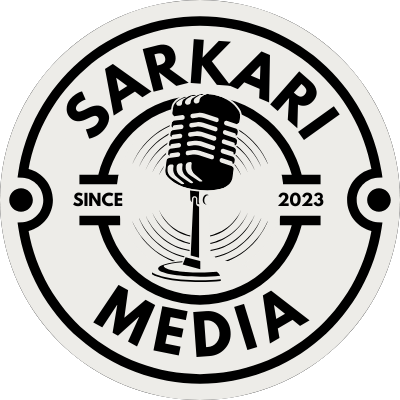Elon Musk, the maverick entrepreneur and owner of Twitter since October 2022, made a bold and contentious decision on November 20th. He announced the reinstatement of former US President Donald Trump’s Twitter account. The decision came after Musk conducted a Twitter poll, which raises pertinent questions about the future of content moderation on one of the world’s most influential social media platforms.
The Suspension of Donald Trump
Donald Trump’s Twitter account faced a permanent suspension on January 8th, 2021, in the aftermath of the January 6th insurrection at the US Capitol. Twitter cited the “risk of further incitement of violence” as the primary reason behind the suspension. In the lead-up to the insurrection, Trump had posted tweets disputing the 2020 election results and making false claims about the election’s legitimacy. On the day of the insurrection, he posted tweets that Twitter deemed as violations of its civic integrity policy.
The suspension of Trump’s account was a momentous decision by Twitter, given that he had used the platform extensively during his presidency. His tweets were a direct means of communication with millions of followers and often shaped the news cycle. However, Twitter maintained that the risks posed by his post-election tweets necessitated such a measure. Other social media platforms, like Facebook, also suspended Trump’s accounts, citing policy violations.
The Free Speech Debate
Trump and his allies vehemently criticized the bans, framing them as an assault on free speech. They contended that as a former president and public figure, Trump had the right to communicate on major social media platforms. In response, platforms reiterated their policies prohibiting dangerous or unlawful content, applicable to all users, including public officials. They argued that Trump was free to communicate through alternative channels or create his own platforms, but they would not tolerate content that could incite violence or undermine civic processes.
Elon Musk’s Twitter Takeover
Elon Musk’s acquisition of Twitter in October 2022 raised speculation about the fate of Trump’s suspension. Musk had previously criticized Twitter’s content moderation decisions, positioning himself as a staunch advocate for free speech. In the days following the acquisition, Musk removed key executives, fueling concerns that content moderation would be relaxed, and banned accounts, including Trump’s, might be reinstated.
However, Musk also claimed that no immediate decisions had been made regarding banned accounts and that a “content moderation council” would review such cases. This brought hope to those who believed that moderation policies would not undergo abrupt changes. Despite these assurances, Musk’s subsequent actions indicated a shift toward less restricted content and a rollback of post-January 6th measures.
The Twitter Polls
Musk’s approach to reinstating banned accounts took a significant turn when he conducted two Twitter polls. On November 4th, he asked if Twitter should offer a general amnesty to suspended accounts, “provided that they have not broken the law or engaged in egregious spam.” Nearly 73% of participants supported this idea, fueling further speculation about Trump’s return.
On November 19th, Musk conducted a poll specifically focused on reinstating Trump’s account. The results were exceptionally close, with 51.8% in favor of reinstating Trump and 48.2% against. Musk saw this as a mandate from the people and promptly reinstated Trump’s account, which had been suspended for over 20 months.
Controversy and Criticism
Musk’s decision was met with intense criticism. Critics argued that an online poll was an unreliable method for determining content moderation policies on a major platform. They highlighted concerns about the poll’s lack of scientific rigor and susceptibility to manipulation, such as by bots. The poll also failed to consider the nuances and context surrounding Trump’s suspension, which was a result of specific tweets that posed risks of inciting violence after January 6th.
Critics argued that restoring Trump without addressing the issues that led to the initial ban essentially condoned his actions and the spread of misinformation. They raised concerns about the potential impact on civic integrity, especially as the 2024 US elections approached. Additionally, the poll did not address the question of reversing other account bans, and the promised “moderation council” review had not taken place.
Musk’s Defense
Musk and his supporters defended the decision, citing the narrow margin in the poll as evidence of the complexity of the issue. They argued that Musk, as the new owner, was following the users’ will on the matter of Trump’s suspension. Musk had consistently criticized permanent bans, advocating for appending warnings or temporarily limiting tweet spread in response to misleading content, rather than outright bans.
Implications for the Future
Elon Musk’s move to reinstate Donald Trump via an online poll sets a significant precedent for content moderation on Twitter. It suggests that the new owner may use public polls rather than established review processes to override ban decisions. This raises questions about the platform’s carefully developed policies after January 6th, aimed at curbing threats to civic integrity and public safety.
The Trump reinstatement has sparked a new chapter in the ongoing debate about free speech, content moderation, and the role of tech companies in political discourse. As the 2024 elections approach, Twitter’s policies under Musk’s leadership will be under intense scrutiny from all sides. Balancing user safety, civic integrity, and free expression is a challenging task with high stakes for global democratic discourse. Musk’s future actions will determine whether this balance can be achieved.
In conclusion, Elon Musk’s decision to reinstate Donald Trump on Twitter through an online poll has ignited a crucial discussion about the power of social media platforms and their role in shaping public discourse. The outcome of this debate will significantly influence future content moderation policies and, by extension, political discussions and even election outcomes.
